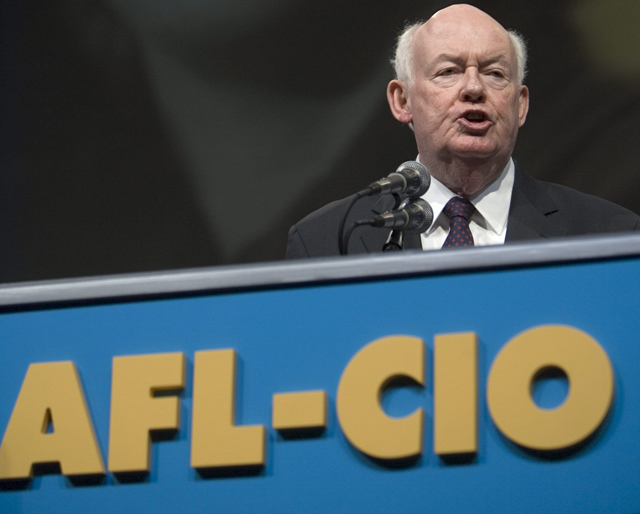Should a State Be Able to Force People to Join a Union?
Elizabeth Slattery / Tiffany Bates /
Can a state force you to join a labor union? On Tuesday, the Supreme Court heard oral argument in Harris v. Quinn, a challenge to Illinois’s authority to force home-care providers who receive state subsidies to join labor unions against their will.
Under the Illinois Disabilities Program, the state pays a modest stipend to home-care providers for some disabled individuals. Since 2009, Illinois has designated these home-care providers as state employees for the purpose of collective bargaining and forced them to financially support the Service Employees International Union as their exclusive bargaining representative. But the First Amendment guarantees both the freedom of association and freedom of speech, which the Supreme Court has recognized prevents the government from forcing individuals to “express certain views or…to pay subsidies for speech to which they object.”
Pamela Harris, the challenger in the Supreme Court case, is one such home-care provider. She receives a $2,100 monthly stipend from Illinois to help offset the cost of caring for son Josh, who suffers from a rare genetic syndrome. Yet Illinois classified her as a state employee for purposes of collective bargaining.
The Supreme Court has upheld the compulsory unionization of true state employees. In Abood v. Detroit Board of Education, the Court determined that mandatory representation furthers the state’s interest in maintaining labor peace among its workforce. But home-care providers such as Harris are anything but “state” employees. They work in the homes of private individuals and are hired, supervised, and even fired by those individuals—not the state. As Harris’s attorney Bill Messenger explained, the state “simply pays them for their services, much like a health insurer pays for the services of medical professionals.”
Illinois is not alone. As Andrew Grossman points out in a new Heritage Legal Memorandum, this is “part of a decade-long campaign to organize home-based care workers…to ‘reinvigorate organized labor.’” Grossman argues:
States like Illinois have no legitimate or compelling interest in forcing home-care workers to submit to exclusive representation by a labor union and pay for the privilege. Illinois’s legal rationale—that it has a “labor peace” interest in providing for the exclusive representation of people who merely receive state subsidies—is unconstrained by any limiting principle and would permit governments to force any group of citizens receiving benefits, from welfare to tax credits, to submit to and support a union.
Grossman maintains that the Supreme Court should “vindicate the rights of home-care workers to be free from coerced association, to be free from supporting speech with which they disagree, and to petition the government in their own voices rather than through the unreliable and conflicted intermediary of a labor union.”
To hear more about this case and predictions for how the Supreme Court might rule, check out a panel discussion at Heritage featuring Grossman, Messenger, and Heritage labor policy expert James Sherk.

